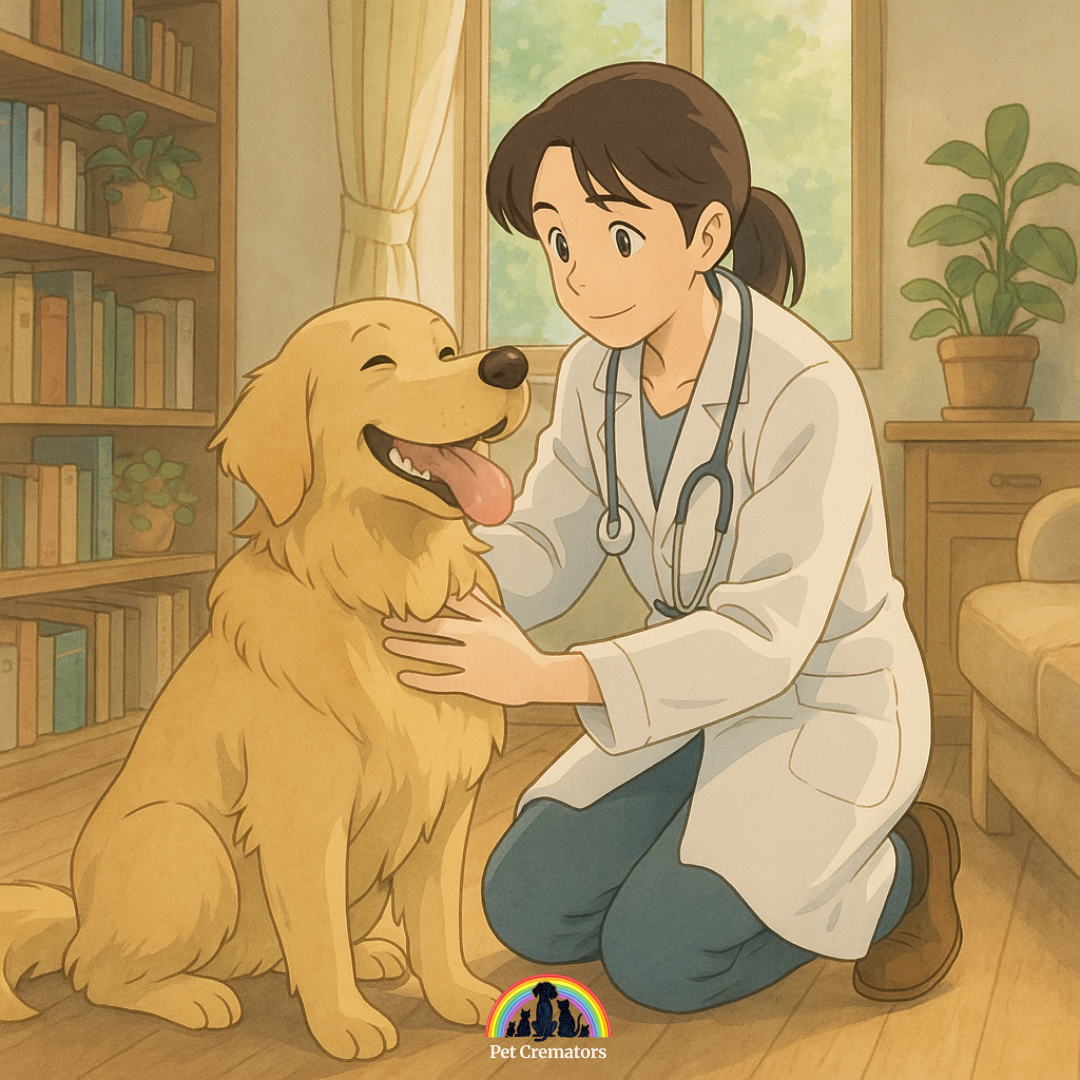Saying goodbye to a beloved pet is one of the hardest experiences a pet owner can face. Yet, having an open and honest conversation with your vet about end-of-life care is one of the most loving decisions you can make. It ensures your pet’s final days are filled with comfort, dignity, and peace. While emotionally difficult, these discussions can help you make informed decisions that honour your pet’s well-being and your family’s values.
This guide offers gentle but practical suggestions on how to begin, what to ask, and how to prepare for that final chapter.
Recognise When It’s Time to Talk
You don’t need to wait for a sudden crisis. In fact, early conversations with your vet can prevent your pet from experiencing prolonged discomfort.
Look out for signs such as:
- Persistent pain or difficulty moving
- Loss of appetite or extreme weight loss
- Loss of bladder/bowel control
- Withdrawn or uncharacteristically anxious behaviour
- Inability to enjoy daily routines
If your pet is facing a chronic or terminal condition (e.g., cancer, kidney failure, or advanced age), it may be time to speak about palliative options and humane euthanasia.
Start the Conversation Gently but Directly
It’s okay to feel emotional. Most vets are trained to approach these situations with empathy and clinical clarity.
Here’s how you might open the dialogue:
“I’ve been noticing some changes in [pet’s name] and I’m worried about their comfort. Could we talk about what end-of-life care might look like?”
or
“I want to do what’s best for [pet’s name]. I’d like to understand when it might be time to start preparing for the final stages.”
This signals to your vet that you’re open to an honest, compassionate discussion.
Key Questions to Ask
Every situation is different. These questions can help clarify your options:
- “What signs should I look for to know if [pet’s name] is in pain?”
- “Are there palliative care options to keep them comfortable at home?”
- “What does the euthanasia process involve?”
- “How can I prepare emotionally and logistically?”
- “Can it be done at home, or only in the clinic?”
- “What are the options for aftercare (burial, cremation, keepsakes)?”
Take notes if needed, or ask for a follow-up email summarising the discussion.
Understand the Process of Euthanasia
Many pet parents are fearful of this step, but it’s often a gentle and peaceful way to end suffering. Ask your vet to explain:
- The medications used
- How long it takes
- Whether you can stay with your pet during the procedure
- Whether you can bring a favourite toy or blanket
Knowing what to expect can remove fear and allow you to focus on saying goodbye lovingly.
Consider Aftercare Options Early
In the fog of grief, it can be overwhelming to make decisions on what to do with your pet’s remains. Ask your vet about:
- Private or communal cremation services
- Burial options (if legally permitted in your area)
- Keepsakes like paw prints, fur clippings, or urns
You may also want to explore reputable pet cremation providers (such as PetCremators.com) who work closely with vets to offer dignified memorial options.
Plan with Love, Not Guilt
Choosing to say goodbye is not a betrayal — it’s the final act of care. You are sparing your pet from needless suffering, even though it breaks your heart.
Remember: You don’t have to do this alone. Vets, pet loss counsellors, and support services exist to guide and hold space for you through the process.
Your pet has shared your life with unshakeable loyalty, laughter, and unconditional love. Talking about end-of-life care may feel like a betrayal — but in truth, it is one of the most humane conversations you can have. By involving your vet early, asking the right questions, and preparing with compassion, you give your beloved companion the farewell they deserve.









